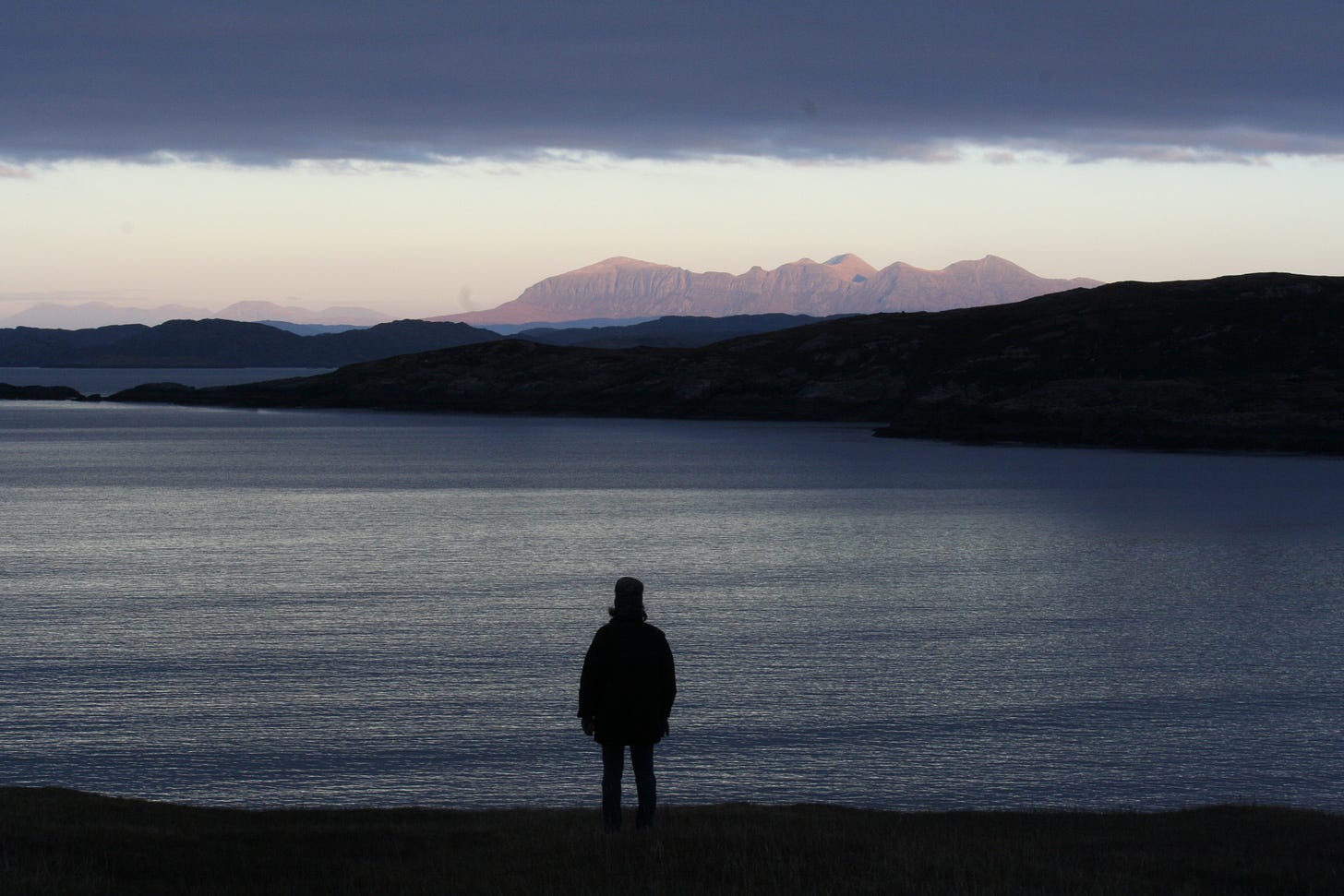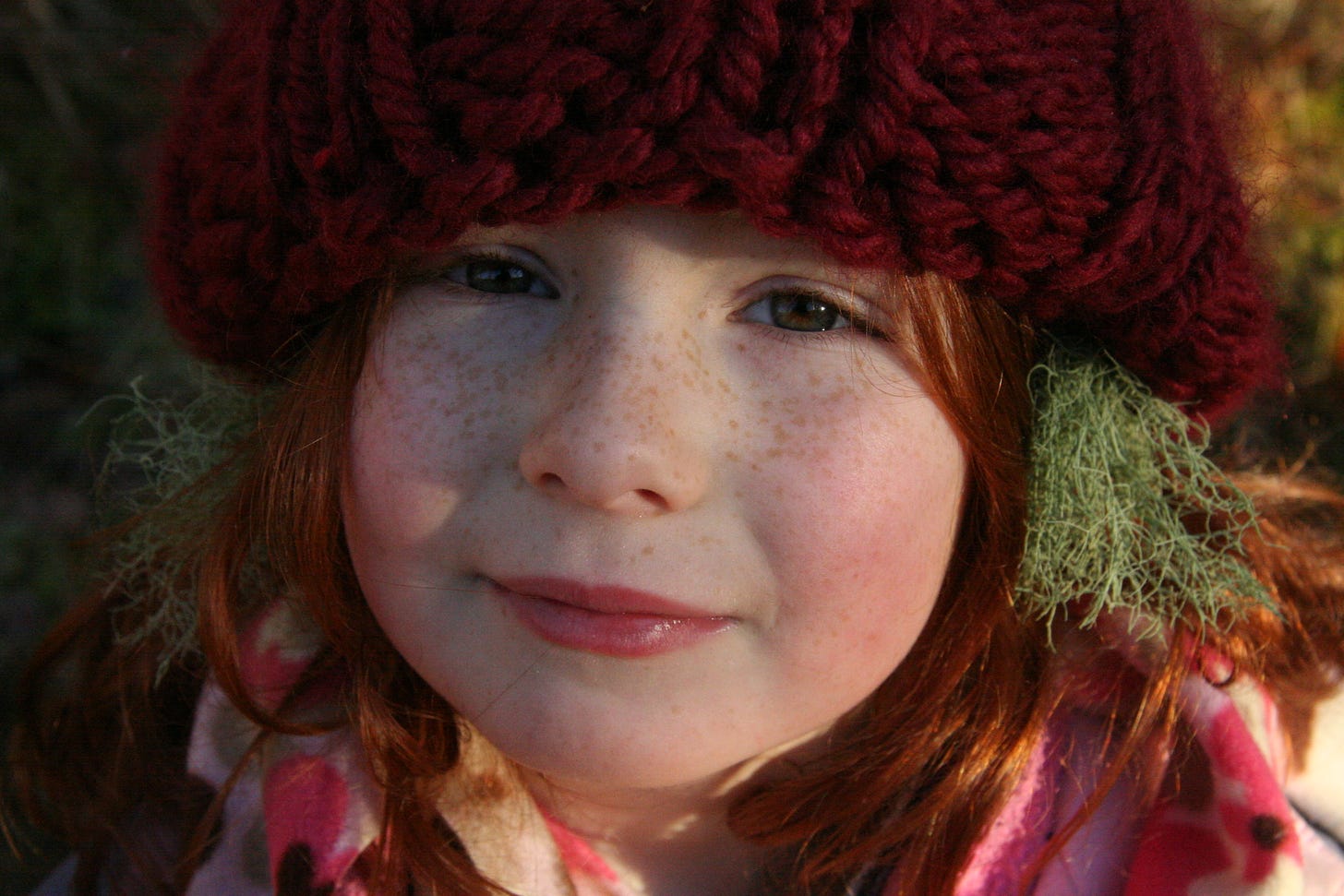Obsolete
August 2024 The BBC report that fishermen from the Philippines, Sri Lanka and Ghana may have been the victims of modern slavery, having arrived in the UK to work on Scottish fishing vessels.
The winter of 2008 was a hard one. That December, sometime after Christmas, we drove through the Scottish highlands. At four in the afternoon, the car temperature gauge showed minus ten. All around us the waterfalls and streams were frozen, and at each one I have the irresistible urge to stop and take photographs. Then I go down on my knees watching the silver threads of water leaking through the fabulously contorted realms of ice below the surface. Occasionally my foot goes through and I get an icy dunk.
Back in the warm car, on the long lonely stretch by Loch Glascarnoch, we passed a man on a bicycle. Up here on the West Coast, long before electric bikes or scooters, if you got banned from driving, there was only the bicycle. He didn’t’t look like he was enjoying the experience.
The last years before technological revolutions always seem, with hindsight, to belong to a much older, creakier age. My 1960s childhood, in a home without telephone, television and car, seems decidedly Dickensian. As the decade ended, we began to accrue the trappings of modernity. A black-and-white television for the football World Cup was followed by Uncle Geoff's cast-off record player. Every new arrival was inevitably followed by a period in which no one was allowed to touch the fabulous machine. Vinyl records had to be handled as though they were fragile Ming dynasty treasures. All the music we had was borrowed: Mozart's Einer Kleiner Nacht Music, Sardinian Folk Songs (that didn't get handled very often), and a Joan Baez EP (remember them? 45rpm but with three or four songs).
Back in the early 1970s I can remember my parents getting dressed up to go to the neighbours to watch a slideshow of their holidays. Paddy and Alan had bought a projector and everyone was invited to see their holidays. "Here's another one of Lulworth Cove - that's the back of Paddy's head just blocking the view a bit." People really sat through those shows, and enjoyed them. What I remember vividly, however, is the mechanical clunking sound of the projector fumbling with the next transparency. That is seared into my memory. Sounds can be startlingly evocative, especially when your attention is drawn to them by having nothing to look at except the back of Paddy's head.
By the early 2000s the slideshow phenomena seemed to be consigned to history, but there was a brief late flurry of activity. Few people then had the computer power to watch moving images online. A movie on your phone was still in the realms of science fiction. Mobile phones had tiny keyboards and it was widely expected that humans would evolve extremely narrow pointed thumbs. To watch a film, you went to a rental shop and got a video. Any online clips looked like they had been filmed in a particularly noxious Victorian pea soup fog.
Since film did not work, The Guardian newspaper was eager to have galleries of travel photos and I discovered a simple editing programme that would string them together with a sound track.
Of course I always hoped to get stunning images, but I soon learned that it was the juxtaposition with sounds that created interest. The combination of still photo and powerful sound clip could work magic. For that reason I'd find myself down on my knees on a frozen lake recording the burbles of water and creaks of ice, shortly before it split. I'd also seek out musicians, ask people to read text, and record wildlife.
On that trip to Scotland we stayed in a bungalow that itself was frozen in time, 1973 again: G-plan furniture, bold swirly carpets, avocado-coloured bathroom set. The idea for my slideshow was to use New Year's Eve, Hogmanay, as a surrogate for Burns Night. I could record music, singing, laughter; take pictures of haggis, candles, dancing, then put together a show that would be uploaded on January 25th, Burns Night.
I had bought a haggis from Scotland's finest purveyor of haggis - Coopers of Bellshill near Glasgow - and added neeps and tatties then got Maddy (then aged five) to carry it on a tray. We went into Ullapool and attended the local ceilidh. I chatted to our landlady, a young farmer, about where to go on the big night itself. "There's a big party," she said, "You'll be welcome - everyone is welcome." She gave some vague directions that concluded with: "After a few miles you'll see a green gate."
By ten o'clock on New Years Eve, the temperature was minus 18 degrees Celcius (zero fahrenheit) and Sophie refused to leave the warm bungalow. Maddy and I set off, the car slithering around on an icy lane. It wasn't snowing, but there were tiny ice cystals in the air and the windscreen kept gathering an opaque sheet of frozen globulets. In the end I was driving with my head out the side window while Maddy sat in the back scanning the desolate empty landscape for a green gate. "This isn't right," I kept saying. I was still saying it when the lane started going downhill steeply. I slammed on the brakes and we just carried on going, slowly turning sideways, then hit a frozen hedge, span back, picking up speed as the slope steepened. "Get your head inside!" I shouted at Maddy, but miraculously the tyres hit a little strip of frozen grit. There was a moment of grip. We came to a halt.
Ahead of us in the headlights I could see that the road ended in a tiny jetty and then black water. We had been seconds from plunging into the loch. I found I was holding my breath. "Maddy. Can you get out the car? Very, very carefully. Then walk up the lane a bit."
It felt like a wrong move would send us slithering down.
Once we were both at the top of the lane, I realised that we were far from our bungalow on a night of brutal cold, having not seen a light for at least ten miles, and our only source of heat was teetering on the brink of full immersion in seawater.
I wish I could say that I immediately rigged up a shelter, lit a fire and speared a couple of salmon, but I didn't. I just stood there thinking, we're going to die: there's no way Maddy can carry me that far.
But then, a light and a noise. A tractor was coming across a field. Next thing a young man jumped out the cab and asked if we needed any help. A long chain was attached to the back of our Skoda. I got in, released the handbrake, and was hauled backwards out of danger.
The young man refused any money. "Not necessary."
We asked about a green gate, and a Hogmanay party. He shook his head. "Sorry. I'm out wi' hay fer the animals. No parties fer me. Cannae help."
We got in the car and put the heater on full blast. "We're going home," I said to Maddy. "Sorry."
We drove back along the lanes for several miles before Maddy shouted. "Dad! There's a green gate."
I stopped and got out. Sure enough there was a green wicket gate in a dry stone wall. But there was no house. I climbed up on the wall. Across the fields, in a dip, I could see a light. "Must be there."
We set off. As we approached, we could hear singing and laughter. Perfect.
The windows of the cottage were all steamed up and banging on the door did no good, so we simply opened it and went inside. Screams of delight. "You're here!" "Hooray!"
A drink was pushed into my hand. Maddy was swept off into an ongoing board game. I sat down at the kitchen table. A youth was playing guitar and singing Fisherman's Blues by the Waterboys. I realised I had left both camera and sound recorder in the car. Everyone joined in.
I wish I was a fisherman tumblin' on the seas
Far away from dry land and its bitter memories
"It's for him," said the singer, when it was over, pointing at a smiling man in the corner. "That's Roy. We rescued him."
Roy was a Filipino fisherman who had signed up to work on Scottish trawlers. "But it's so cold!"
He shrugs. "It not so bad."
He had been all around the world for twenty years, sending money home. In Scotland he was legally not allowed to leave the boat, but the party-goers had come across him alone aboard a frozen vessel tied up in Ullapool harbour. "They just went off and left him. Isn't that disgusting? All the pipes were frozen and there was no food."
The phrase ‘modern slavery’ had not yet been invented and slavery was something from the eighteenth century.
"Taiwan boat much harder," grinned Roy. He was made of stern stuff and had earned the respect of everyone at the party by his incredible ability to splice ropes in the most complicated of ways, while consuming vast quantities of whisky.
There was more singing. Eventually I dragged Maddy away and we went back to our bungalow.
Next day was New Years Day. The landlady came around. "You didn't come to the party!"
So it had just been a random house in the wilderness.
I asked if she would contribute to my slideshow by reciting the Robert Burns poem 'Address to the Haggis'. It's a traditional part of any Burns Night supper.
Fair fa' your honest, sonsie face,
Great chieftain o' the pudding-race!
Aboon them a' ye tak your place,
Painch, tripe, or thairm :
Weel are ye wordy o'a grace
As lang's my arm.
She refused.
I went into Ullapool and scoured the pubs. Most people were too drunk to read. One partially sober man declared that without an Ayrshire accent like the great Rabbie, it would be morally wrong, blasphemous. He was from Dundee.
In the end I gave up. When I made the slideshow, I went online and found a recording of John Gordon Sinclair reading the poem. However, there was no option to download in those days. Instead I rehearsed several times and managed to fake an accent. No one complained or perhaps no one listened. They probably didn't have the bandwidth to hear it clearly.
When data transmission improved, and dial-up connections ended, so died the slideshow. Its brief Indian Summer was over. I still think something was lost with it, an alchemy of sound and still image. The Guardian website no longer supports the software. The fifty or so shows that I made have gone to the virtual graveyard. There's nothing left at all, not even for a future car boot sale. Hopefully slavery will go the same way.





